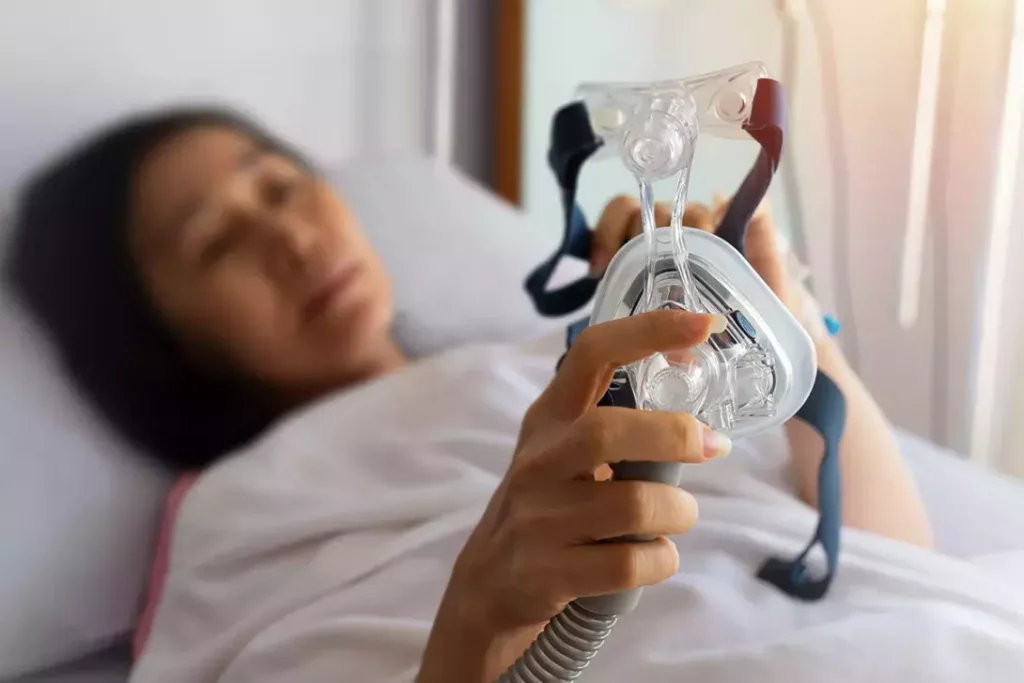Sleep is essential for overall health and well-being. However, conditions like sleep apnea can disrupt your sleep cycle and significantly affect your quality of life. A sleep apnea test can offer insights into your sleep patterns and help you achieve better health outcomes. This article explores how a sleep apnea test in Melbourne can enhance your life by illuminating the intricacies of sleep apnea, the testing process, and the life-changing effects of treatment.
Understanding Sleep Apnea
Sleep apnea is a sleep disorder characterized by repeated interruptions in breathing during sleep. This condition can lead to fragmented sleep and a lack of oxygen to the brain, which can have profound effects on health. Many individuals who suffer from sleep apnea may not even be aware that they have it, as the symptoms can occur during the night while they are asleep. This makes it essential for partners or family members to be vigilant and report any unusual behaviors, such as loud snoring or sudden pauses in breathing.
Melbourne offers a variety of sleep centers and clinics where individuals can undergo comprehensive testing for sleep apnea. Understanding what to expect from these tests can alleviate potential anxiety and encourage proactive care. With a focus on patient comfort and advanced technology, these facilities are dedicated to ensuring that each individual receives personalized attention throughout the process of sleep apnea test Melbourne.
The Science Behind Sleep Apnea
The most common type of sleep apnea is obstructive sleep apnea (OSA), which occurs when the muscles at the back of your throat relax excessively, blocking the airway. Central sleep apnea (CSA), although less common, happens when your brain fails to send proper signals to the muscles that control breathing. Complex sleep apnea syndrome, also known as treatment-emergent central sleep apnea, is a combination of both OSA and CSA, complicating the diagnosis and treatment process.
When breathing is interrupted, the brain momentarily wakes the individual to restore normal breathing, which can happen dozens or even hundreds of times a night. This results in poor sleep quality and various negative health outcomes, including fatigue and cognitive impairments. Over time, the cumulative effect of these interruptions can lead to serious complications, such as memory problems and decreased performance in daily activities. Furthermore, the chronic stress on the cardiovascular system can result in long-term health issues that may require comprehensive medical intervention.

Common Symptoms and Risks of Sleep Apnea
Some common symptoms of sleep apnea include loud snoring, choking or gasping for air during sleep, and excessive daytime sleepiness. Individuals may also experience irritability, difficulty concentrating, and decreased libido. These symptoms can significantly impact a person’s quality of life, leading to strained relationships and reduced productivity at work. Moreover, the psychological effects of sleep deprivation can contribute to anxiety and depression, creating a vicious cycle that exacerbates the condition.
The risks associated with untreated sleep apnea are significant, including increased chances of hypertension, heart disease, stroke, and Type 2 diabetes. Recognizing the symptoms early is crucial for timely intervention. Additionally, individuals with sleep apnea may face a higher risk of accidents due to impaired alertness and reaction times, particularly in situations that require full attention, such as driving or operating heavy machinery. The importance of seeking medical advice cannot be overstated, as effective treatments are available that can greatly improve both sleep quality and overall health.
Read more at: Understanding Your Sleep Test
The Importance of Sleep Apnea Testing
Considering the potentially severe health implications of sleep apnea, testing is a critical step in managing this condition. Understanding whether you suffer from sleep apnea can inform your treatment plan and improve your quality of life.
Early Detection and Diagnosis
Early detection of sleep apnea significantly enhances the chances of effective treatment. Recognizing the warning signs and undergoing a sleep apnea test can lead to timely interventions, reducing long-term health risks.
The process typically involves overnight monitoring in a sleep clinic or using a portable device at home. These tests track your breathing patterns, oxygen levels, and even heart rate during sleep, providing valuable data for healthcare professionals. In addition to these physiological metrics, some tests also evaluate sleep stages, which can help identify how sleep architecture may be disrupted by apnea events. This comprehensive approach ensures that all aspects of your sleep health are considered, leading to a more accurate diagnosis. Find more about monitoring on https://monitoredu.com/proctoring
The Role of Sleep Apnea Tests in Treatment Planning
Once diagnosed, sleep apnea testing results can guide doctors in tailoring a specific plan of action. This could include lifestyle changes, CPAP therapy, or other treatment options, depending on the severity and type of apnea detected.
An individualized treatment approach is essential for optimal outcomes, as it recognizes the unique circumstances and health conditions of each patient. Without such testing, it would be challenging to determine the best strategy for relief. Furthermore, ongoing assessments may be necessary to monitor the effectiveness of the chosen treatment, as some patients may experience changes in their condition over time. Regular follow-up tests can help adjust therapies to ensure they remain effective, ultimately leading to better management of symptoms and improved overall health.
Sleep Apnea Tests in Melbourne
What to Expect During the Test
The sleep apnea testing process usually involves an overnight assessment, where you will sleep with sensors attached to monitor various functions. These sensors typically assess brain waves, heartbeats, breathing patterns, and blood oxygen levels. The setup may also include a video recording to observe any physical movements or disturbances during sleep, providing a comprehensive overview of your sleep behavior.
You may feel a little uncomfortable due to the sensors and the observation, but the staff is trained to make the environment as soothing as possible. The goal is to capture an accurate reflection of your sleep patterns without elevating your stress levels. Many clinics offer cozy rooms, soothing lighting, and even calming sounds to help you relax before drifting off to sleep. Additionally, some facilities provide pre-test consultations to help you understand the equipment and address any concerns you may have.
Interpreting Your Test Results
Once the results are in, a sleep specialist will review and interpret the data gathered during your sleep. This analysis will determine the presence and severity of any sleep apnea and guide the recommendations for treatment. The specialist will explain the significance of the various metrics collected, such as the Apnea-Hypopnea Index (AHI), which quantifies the number of apneas and hypopneas experienced per hour of sleep.
Understanding your results can be empowering. It provides clarity about your sleep health and informs you about the next steps you can take to improve your quality of life. Many clinics also offer follow-up consultations to discuss lifestyle changes, potential therapies, and support groups that can aid in managing sleep apnea. This holistic approach ensures that patients not only receive a diagnosis but also the tools and resources they need to enhance their overall well-being. To learn more about diagnosis click here.
How Sleep Apnea Treatment Can Improve Your Life
After diagnosis, many individuals are often apprehensive about treatment. However, understanding how effective treatment can significantly impact daily life is essential.
The Impact of Treatment on Daily Functioning
For those suffering from sleep apnea, treatment can lead to immediate improvements in sleep quality and overall functioning. Most people experience less daytime fatigue, improved mood, and increased concentration following treatment.
With better sleep, daily functioning and quality of life can drastically improve, allowing individuals to engage more meaningfully in their family and social lives. Many report feeling more energized and motivated to participate in activities they once found exhausting or overwhelming, such as exercising, social gatherings, or even simple tasks like running errands. This renewed sense of vitality can foster stronger relationships, as individuals become more present and engaged with loved ones, enhancing emotional connections and creating a more supportive environment.

Long-Term Health Benefits of Sleep Apnea Treatment
The long-term health benefits of effective sleep apnea treatment cannot be overstated. Successfully managing sleep apnea can decrease the risks associated with cardiovascular issues and other severe health conditions.
Furthermore, treatment can improve metabolic health, boost the immune system, and contribute to a healthier lifestyle. Embracing treatment is not just about enhancing sleep quality; it is about promoting overall health and longevity. Research has shown that individuals who adhere to their treatment plans often experience lower blood pressure levels and improved cholesterol profiles, which can lead to a reduced risk of stroke and heart disease. Additionally, better sleep can enhance cognitive function, leading to sharper memory and decision-making skills, which are crucial in both personal and professional settings. As individuals begin to notice these positive changes, they may feel inspired to adopt other healthy habits, such as improved nutrition and regular physical activity, creating a holistic approach to well-being.
Making the Decision to Get Tested
Deciding to get tested for sleep apnea can feel daunting, but understanding the advantages can motivate you to take this critical step toward better health. Sleep apnea is not just a nuisance; it can have serious implications for your overall well-being, including increased risks for heart disease, diabetes, and other chronic conditions. Recognizing the signs and symptoms early on can be pivotal in preventing these complications and ensuring a healthier future.
When to Consider a Sleep Apnea Test
If you frequently experience symptoms like loud snoring, chronic fatigue, or disruptions in your sleep pattern, it may be time to consider a sleep apnea test. Generally, individuals who value their health and well-being should seek testing sooner rather than later. Other indicators can include morning headaches, difficulty concentrating during the day, and irritability, which can all be linked to the effects of poor sleep quality. It’s important to listen to your body and take these signals seriously.
Consulting with a healthcare professional can help determine whether your symptoms warrant further investigation through a sleep study. They can guide you through the process, explaining what to expect and how the results can influence your treatment options. This professional insight can alleviate some of the anxiety associated with the testing process and empower you to make informed decisions about your health.
Taking the First Step Towards Better Sleep
Taking the initiative to get tested for sleep apnea is a proactive choice that can lead to improved health outcomes and a higher quality of life. The journey may seem intimidating, but it can lead to significant long-term benefits. Many people find that after receiving treatment, they not only sleep better but also experience enhanced mood, increased energy levels, and improved cognitive function. This can positively impact various aspects of life, from personal relationships to professional performance.
By addressing sleep apnea through proper testing and treatment, you’re setting the stage for restorative sleep and improved health. With the right support and resources available in Melbourne, you can take essential steps toward enjoying restful nights and energetic days. Additionally, exploring lifestyle changes such as weight management, dietary adjustments, and exercise can further complement your treatment plan, creating a holistic approach to your health. Engaging with support groups or educational workshops can also provide encouragement and valuable information as you navigate this journey to better sleep and overall wellness.

